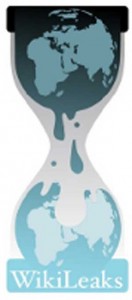WikiLeaks has done it again. The whistle-blowing website has just published hundreds of thousands of confidential State Department cables. These communications apparently reveal the details of conversations with, and personal impressions and assessments of, foreign leaders and diplomats. Many fear that the leak will undermine international relations in profound and unknowable ways. In August, the website had released 92,000 military documents that vividly illustrated why the US military campaign in Afghanistan had achieved so little success. In April, the site had released footage showing US troops launching a seemingly unjustified air strike in Iraq, killing 12 people, including 2 Reuters journalists. And last year, WikiLeaks helped get “Climategate” rolling when it published memos from climate scientists – memos that gave conservatives ammo to argue that global warming is a fiction.
 There is no question that many of the Wikileaks documents are a great read. However, these revelations have led to apparently two contradictory statements among the policy makers and analysts all over the world. One view is that the website’s founder Julian Assange (an Australian citizen) and his colleagues at Wikileaks have done a great thing by letting the world know the reality about the United States and its actions. The diplomatic conversations between American officials and leaders from various parts of the world provide important insights about the subtleties of U.S. policy and the complexities of dealing with different personalities and governments around the world. Even otherwise, the leaked documents and conversations are testimonies of quality journalism, without which the American public, or for that matter the rest of the world, would have never known about the abuses at Abu Ghraib or the electronic surveillance programmes of the US National Security Agency that became rightly controversial during the Bush administration. In those cases, there was a higher principle at stake than protecting the secrecy of diplomatic exchanges.
There is no question that many of the Wikileaks documents are a great read. However, these revelations have led to apparently two contradictory statements among the policy makers and analysts all over the world. One view is that the website’s founder Julian Assange (an Australian citizen) and his colleagues at Wikileaks have done a great thing by letting the world know the reality about the United States and its actions. The diplomatic conversations between American officials and leaders from various parts of the world provide important insights about the subtleties of U.S. policy and the complexities of dealing with different personalities and governments around the world. Even otherwise, the leaked documents and conversations are testimonies of quality journalism, without which the American public, or for that matter the rest of the world, would have never known about the abuses at Abu Ghraib or the electronic surveillance programmes of the US National Security Agency that became rightly controversial during the Bush administration. In those cases, there was a higher principle at stake than protecting the secrecy of diplomatic exchanges.
The other view is that the leaks have put the lives of soldiers and the sources in great danger, apart from revealing state-secrets. These leaks, so goes the logic, have undermined security everywhere instead of enhancing it. By and large, it is universally believed that it will be great and ideal if the global disputes are resolved peacefully rather than through the use of military force. And that is precisely what the diplomats do or attempt to do. Their job is to talk and talk till things are resolved and as long as they do it there is little need of the soldiers to fight. Viewed thus, world peace will be a lot harder to achieve if the U.S. State Department is cut off at the knees. Unfortunately, this is precisely what this mass revelation of documents is going to do. The essential tool of State Department diplomacy is trust between American officials and their foreign counterparts. Unlike the Pentagon, which has military forces, or the Treasury Department, which has financial tools, the State Department functions mainly by winning the trust of foreign officials, sharing information, and persuading. Those discussions have to be confidential to be successful. Destroying confidentiality means destroying diplomacy.
The fundamental reality is that Pakistans very existence is dependent on its anti-India posture. Take India away and Pakistan will have an identity crisis. Unless the typical mindset of the Pakistanis is changed, India will remain their eternal enemy.
In fact, both sets of arguments have their merits and I find it difficult to take sides. While in this age of globalisation transparency and information are fundamental requisites, there is something called practicality. Whatever may be your profession, “negotiating” always needs confidentiality to succeed. However, you ought to let everyone know, particularly in matters pertaining to state-craft and governance, what is eventually “negotiated”. As every student of diplomacy knows, the dictum “open covenants openly arrived at” has been replaced with “open covenants secretly arrived at”. In that sense, I do not find the discrepancy between what the American diplomats say in public and what they brief their political masters in private is such a big deal. In fact, the latest round of leaks, unlike the Pentagon Papers in the 1970s (dealing with the Vietnam War), shows that American private communication with foreign leaders by and large reflects the same sentiments offered by U.S. officials in public. Overall, there is no grand conspiracy or no grand hypocrisy to uncover and expose, except secretary of state Hillary Clinton’s alleged instructions to build a data-base of senior officials of the UN Secretariat, presumably to facilitate the operations of the US intelligence in the UN headquarters.
Talking particularly of India, WikiLeaks is reported to be having in its possession over 3000 cables exchanged between the US State Department and the US Embassy in New Delhi. Most of them have not been revealed, though it is reported that American diplomats have talked of India, Germany, Brazil and Japan as “self-appointed” permanent members of the UN Security Council. Naturally, it has hurt the sentiments of many Indians, but factually speaking, Americans are not to be faulted. After all, the idea of making us or the other three countries permanent members have not come from other UN members (like our first Prime Minister Jawaharlal Nehru unthinkably did for Communist China); it is we who are demanding the permanent membership, and legitimately so as we deserve it. Be that as it may, our response to the leaks has been measured and proper. Whereas the WikiLeaks cables are widely feared to strain Washington’s diplomatic ties with allies and friendly countries, the United States feels that India has handled the episode with “maturity”.
However, as regards the leakage of the diplomatic cables with the US Embassy in Islamabad, one has not become wiser a bit. The release throws light on Pakistan’s intelligence apparatus, which has provided strategic support to the Taliban, helping it coordinate attacks against US troops and assassinate Afghani leaders, despite the fact that Pakistan officially claims to be an ally of the US. Any objective strategic analyst knows that Pakistan is playing both sides in the war in Afghanistan. For Pakistan, Afghanistan provides the so-called strategic depth against India. It always wants to ensure that Afghanistan remains under Islamabad’s influence.
Similarly, it is also no news to India if the leaks have revealed how the Pakistani establishment is systematically supporting the anti-India elements. It is not surprising that Punjab Chief Minister Shahbaz Sharif – Opposition leader Nawaz Sharif’s brother – alerted the Jamaat-ud-Dawa to impending UN sanctions after the Mumbai terror attacks. Following this tip-off, the terror outfit emptied its bank accounts before they could be frozen. It is also not surprising, even though it is interesting to know through the leaks, that in February this year Pakistan’s Prime Minister Yousuf Raza Gilani rejected a US suggestion, conveyed through Senator John Kerry, to sign a non-aggression pact with India, arguing that its public would not support the idea unless Washington “treated India and Pakistan equally” and New Delhi reduced its “footprint” in Afghanistan.
If anything, the WikiLeaks has only reconfirmed the truth that the United States, or any other country for that matter, can never satisfy the Pakistani establishment when it comes to India. The fundamental reality is that Pakistan’s very existence is dependent on its anti-India posture. Take India away and Pakistan will have an identity crisis. Unless the typical mindset of the Pakistanis is changed, India will remain their eternal enemy. Mercifully, the Americans in private are now concurring with the Indian stance. It remains to be seen when Washington will publicly go for a reevaluation of its policy towards Pakistan, which is entrapping the United States – offering selective help in exchange for bags of cash and weapons that are to be used against India, whether directly or indirectly through Afghanistan.




